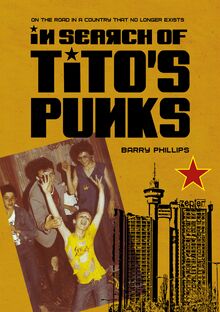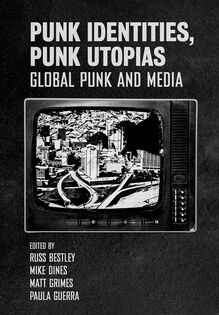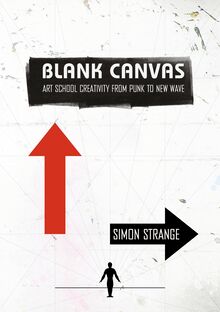-
 Univers
Univers
-
 Ebooks
Ebooks
-
 Livres audio
Livres audio
-
 Presse
Presse
-
 Podcasts
Podcasts
-
 BD
BD
-
 Documents
Documents
-
- Cours
- Révisions
- Ressources pédagogiques
- Sciences de l’éducation
- Manuels scolaires
- Langues
- Travaux de classe
- Annales de BEP
- Etudes supérieures
- Maternelle et primaire
- Fiches de lecture
- Orientation scolaire
- Méthodologie
- Corrigés de devoir
- Annales d’examens et concours
- Annales du bac
- Annales du brevet
- Rapports de stage
La lecture à portée de main
Découvre YouScribe en t'inscrivant gratuitement
Je m'inscrisDécouvre YouScribe en t'inscrivant gratuitement
Je m'inscrisEn savoir plus
En savoir plus

Description
The book traces the story of how a song recorded in 1981 by a young punk rock band from a cultural backwater on the English-Welsh border, and released on a tiny independent record label, became famous in a Yugoslavia formed in the image of Marshall Tito? Why was it 30 years before the members of the band found out? How did this ‘socialist’ country have one of the most vibrant punk scenes in the world?
Gloucester, England, 1981; multi-racial, teenage street-punk band, Demob, recorded and released what would become their best known and most enduring song, No Room For You. A rasping vocal told the story of the 1979 closure of a short-lived, punk rock venue at a disused motel on the edge of the provincial city. Depending on your mind-set, the lyrics were either a howl of rage at the injustice, a wail at the loss, or a love-song to an era.
More than three decades later, the author – and Demob’s bass player in 1981 – set out to follow the song across a country that no longer exists. On the road he heard the life stories of the heroes of Yugoslavian punk and the punks themselves; from the Tito era, through the disintegration and wars, forced displacements and permanent exiles, to today’s turbulent ‘reconstruction. Who were ’Tito’s punks’ and who are they now?
An unvarnished but also affectionate portrait of Yugoslavia in the years before its demise through to the present, seen through the unlikely lens of punk and punk rockers. Part travelogue, part history the book is both, and neither, of those things. Rather, it is a mural and soundtrack of a journey through a time and place which no longer exists.
The latest addition to the Global Punk series from Intellect.
Foreword
Acknowledgements
Notes on Pronunciation
Prologue: The Play-on Track: Teenage Kicks
One: Scheveningen: Paint It Black
Two: The Hague to Gruška 4
ALEKSANDAR DRAGAŠ: Club Limb, Zagreb
Three: Zagreb: Black Lamb and Grey Falcon
ZDENKO FRANJIĆ: Club 22, Prečko, Zagreb
Four: To Ljubljana: On the Brotherhood and Unity Highway
Five: A Day in Court: Vermeer in Bosnia
ANTE ČIKARA: The Haven, Scheveningen and De Pijp, Amsterdam
Six: Music Is the Art of Time
PERO LOVŠIN: The Fish Market, Ljubljana
Seven: The Ljubljana Punk Rock Taxi Tour
MARIN ROSIĆ: On the Road in Ljubljana
Eight: Return to Zagreb
MATIJA VUICA AND JURE POPOVIĆ: The Bulldog, Central Zagreb
Nine: Zagreb (1977) ... and Tito’s Coming to Town
DARKO RUNDEK: Caffe Bar Albatros, Ljubljanica 4, Zagreb
Ten: The Hague Hilton
Eleven: Istria: Pirates and Punk Rock Heartlands
RUJANA JEGER: Zagreb
Twelve: Pula: Uljanik Calling
SALE VERUDA: Forum Square, Pula
Thirteen: England: Back to the Forest
ROBERT ‘MIFF’ SMITH: Coleford, Gloucestershire, England
Fourteen: To Belgrade: On the Brotherhood and Unity Highway Again
Fifteen: Internacionalnih Brigada
PETAR JANJATOVIĆ: Radost Fina Kuhinjica, Belgrade
Sixteen: Lost in Belgrade Central
BRANKO ROSIĆ: Belgrade café terrace
Seventeen: Kafana Mornar: Belgrade Is Drowning
POGONBGD, TRNJE AND FRIENDS: Kafana Mornar and Studio Mašina 23
Eighteen: Novi Sad, Vojvodina: Words and Bullets
Nineteen: Novi Sad: NATO Bombs and Jew Street Ghosts
STEVAN GOJKOV, VLADIMIR ‘RADULE’ RADUSINOVIĆ AND SAVA SAVIĆ: Central Novi Sad
Twenty: To Kragujevac: On the Brotherhood and Unity Highway Once More
VUJA (SAŠA VUJIĆ): Kragujevac
Twenty One: Return to Belgrade: The House of Flowers
Sleeve Notes: Standing at the Gates of the West: Hitsville Yugo
Timeline: Yugoslavian Punk from 1975 Until Break-Up
(VINKO BARIĆ)
Selected Discography
Index
Sujets
Special Interest
Holocaust
HISTORY
Histoire
MUSIC
Interest group (disambiguation)
The Holocaust
Communism
Multiple signal classification
Travel writing
General officer
Musician
Yugoslavia
Serbia
Socialism
Russia
Croatia
Balkan Wars
Serbie
Punk
General
Yougoslavie
Communisme
Balkans
Holocauste
Socialisme
Russie
Europe
Informations
| Publié par | Intellect Books |
| Date de parution | 14 mars 2023 |
| Nombre de lectures | 0 |
| EAN13 | 9781789387339 |
| Langue | English |
| Poids de l'ouvrage | 6 Mo |
Informations légales : prix de location à la page 0,1498€. Cette information est donnée uniquement à titre indicatif conformément à la législation en vigueur.
Extrait
ON THE ROAD IN A COUNTRY THAT NO LONGER EXISTS
iN SERCH OF TiTO'S PUNKS
BARRY PHILLIPS
GLOBAL PUNK
Series editors: Russ Bestley and Mike Dines
Produced in collaboration with the Punk Scholars Network, the Global Punk book series focuses on the development of contemporary global punk, reflecting its origins, aesthetics, identity, legacy, membership, and circulation. Critical approaches draw upon the interdisciplinary areas of (amongst others) cultural studies, art and design, sociology, musicology, and social sciences in order to develop a broad and inclusive picture of punk and punk-inspired subcultural developments around the globe. The series adopts an essentially analytical perspective, raising questions over the dissemination of punk scenes and subcultures and their form, structure and contemporary cultural significance in the daily lives of an increasing number of people around the world. To propose a manuscript, or for more information about the series, please contact the series co-editors Russ Bestley and Mike Dines (contact details available at www.intellectbooks.com ).
The Punk Reader: Research Transmissions from the Local and the Global
Edited by Russ Bestley, Mike Dines, Alastair Gordon and Paula Guerra
Trans-Global Punk Scenes: The Punk Reader Vol. 2
Edited by Russ Bestley, Mike Dines, Alastair Gordon and Paula Guerra
Punk Identities, Punk Utopias: Global Punk and Media
Edited by Russ Bestley, Mike Dines, Matt Grimes and Paula Guerra
PUNK! Las Am ricas Edition
Edited by Olga Rodr guez-Ulloa, Rodrigo Quijano and Shane Greene
Blank Canvas: Art School Creativity From Punk to New Wave
Simon Strange
Punk Pedagogies in Practice: Disruptions and Connections
Edited by Francis Stewart and Laura Way
Punk Art History: Artworks From the European No Future Generation
Marie Arleth Skov
In Search of Tito's Punks: On the Road in a Country that No Longer Exists
Barry Phillips
First published in the UK in 2023 by Intellect, The Mill, Parnall Road, Fishponds, Bristol, BS16 3JG, UK
First published in the USA in 2023 by Intellect, The University of Chicago Press, 1427 E. 60th Street, Chicago, IL 60637, USA
Copyright 2023 Intellect Ltd
Produced in collaboration with the Punk Scholars Network
All rights reserved. No part of this publication may be reproduced, stored in a retrieval system or transmitted, in any form or by any means, electronic, mechanical, photocopying, recording or otherwise, without written permission.
A catalogue record for this book is available from the British Library.
Art director: Russ Bestley
Copy editor: MPS, Limited
Cover designer: Russ Bestley
Indexing: Barry Phillips and Mike Dines
Production manager: Laura Christopher
Typesetting: MPS, Limited
Print Hardback ISBN 978-1-78938-731-5
ePDF ISBN 978-1-78938-732-2
ePUB ISBN 978-1-78938-733-9
Printed and bound by Shortrun
Part of the Global Punk series
ISSN 2632-8305 | ONLINE ISSN 2632-8313
To find out about all our publications, please visit our website.
There you can subscribe to our e-newsletter, browse or download our current catalogue and buy any titles that are in print.
www.intellectbooks.com
The author, Rijeka Tomislav Tompa Zebi (2017)
Yugoslavia: The successor states
FOREWORD
‘Punk is an attitude.’
It was the first sentence in the book on punk I'd got from London – it fell apart a long time ago, and I have no idea who the author was. It was 1980. I was twelve and a half (critical distinction at that age) and about to start my first punk fanzine. But I had no idea what this word meant, not really. Still, I went on and eventually translated the whole thing, by hand, on lined sheets of paper. The fanzine was called ‘Ziherica’ (a safety pin).
That was the only issue. I had no readers. By the next school year, the whole bunch of long-haired, Jim Morrison-reciting boys – and one girl – emerged in skin-tight trousers and ripped shirts with safety pins, badges, and short hair.
In a country with two alphabets, three languages, four religions, five nationalities, six republics, and eight ethnic minorities, punk became a fresh new musical force that fell on the thirsty urban youth as a much-needed rain.
Fast forward a few decades, and I am tasked with writing a foreword to a book that begins with the story of how a song recorded in 1981 by a young multi-racial punk rock band from a ‘stagnating provincial English city’ (author's words) and released on a tiny independent record label became famous in Yugoslavia.
Barry Phillips embarked on an adventure to follow the journey of that song in the hope that by doing so he might ‘better understand’ a country that was independent at the time of the Cold War, that was neither West nor East, that was ruled by the Communist Party but stood outside of the Iron Curtain; the country in the middle of Europe that many would barely have heard about if it had not fallen apart in bloody wars (1991–95).
However, this book offers much more to an interested reader – those familiar with Rebecca West's 1941 book Black Lamb and Grey Falcon: A Journey through Yugoslavia will notice some similarities in the approach. Nevertheless, unlike West, Phillips never speaks from the ‘above’; he shares the frog-eye perspective of the many subjects he interviews after he prepares the stage for them and lets them take it. So they are not his roadies; each of them plays their own gig in a festival that is this book.
What sets it apart from other books of a similar ilk, among other things, is the author's way of using the histories to inform the personal ‘travelogue’ and not the personal travelogue to inform the histories. Perhaps it's because Phillips sees the Yugoslav punk scene as similar to the provincial punk scene in the United Kingdom and writes about it with a fondness for (and knowledge of) provincial punk. However, when you add to this his knowledge of modern European history and the meticulous historical research, as well as the interest in and understanding of the socioeconomic circumstances of the ex-Yugoslav republics-turned-states that he visits, you get much more than a travelogue – or a genre music book.
If one is, however, interested in the reception, development and history of punk in this region of the world, the book is chock-filled with interviews – not only with some key players in the scene but also with journalists and critics, as well as witnesses of the time in the place that for those few years, really held a unique position in the world – but these are never overly repetitive or dull.
Phillips skilfully constructs the chapters to let his thoughts and experiences, as well as the experiences and thoughts of locals involved in the punk scene(s), shine a light on ex-Yugoslavia and provide a more nuanced picture of the region. The book is full of excellent references to other books, movies and contemporary arts and maybe an urban legend and gossip or two (look out for the footnotes!).
I am sure it will be of interest even to those who lived then and there, let alone those who didn't – I certainly learned something about a few young, current punk voices that Phillips invites onto the stage, among the others. This amalgam approach resulted in an unexpected, in-depth perspective into the more recent changes in society. Changes that show how angry young people carry the punk torch further into the (unforeseeable?) future. ‘No future’ is not something they want to hear, and it is refreshing to know.
The interviews themselves speak volumes. The author kept them unfiltered, wanting them to stay as genuine as possible, which is a nice touch. His subjects were thus free to express their personal stories in their own words – from music to culture in general, politics and, inevitably, the wars.
I am aware of what a challenge it can be to write about ex-Yugoslavia and its break-up without going into an explicit deconstruction of the wars and the reasons behind them. However, Phillips managed to provide a wealth of material from which the readers will be able to draw their conclusions. In one chapter, he even visits the International Criminal Tribunal for the former Yugoslavia (ICTY) in his then home city, Den Haag, giving some insight into his thoughts and feelings on the wars, which, along with other personal little gems of insight and feeling, make the hard topics he sometimes deals with extremely readable and the author himself very personable, sympathetic and relatable.
And finally, the interviews quite clearly show how my generation, the punk generation from ex-Yugoslavia, had lost its innocence. Most of us considered ourselves punks, and then we were suddenly made aware that we were not simply punks. I remember my father telling me one day how his side of the family is Serbian, probably foreseeing that could shortly become a problem. ‘Oh yeah?’ I said, ‘and how do you know that?’ And then I added, ‘maybe you are a Serb, but I am a punk’.
Alas, soon after that, we learned how to tell the difference among the Croat, Serbian and Bosniak family names. The country fell apart; the bands fell apart, some of us stayed and fought against the war, some left, and some were dragged down by it. Nevertheless, the punk spirit survived.
Fast forward to today, my eighteen-year-old nephew plays in a punk band and keeps me up with the new punk scene in Croatia. So no, punk is certainly not dead. However, at 45, it has grown-up kids and might have finally got its Ph.D., as Phillips has jokingly put it.
Rujana Jeger, novelist, columnist, cultural commentator, canine-archaeologist, punk. Istria, Croatia, Summer 2022
ACKNOWLEDGEMENTS
First, of course, everyone who gave up their time and energy to provide the remarkably candid and rich interviews. There is no need to name them all again here but a special mention must go to my ‘Balkanese brother from another mother’, Tomislav ‘Tompa’ Zebić, and to Daniela Forca and Dunja Črnko for all of their advice, support, hospitality
-
 Univers
Univers
-
 Ebooks
Ebooks
-
 Livres audio
Livres audio
-
 Presse
Presse
-
 Podcasts
Podcasts
-
 BD
BD
-
 Documents
Documents
-
Jeunesse
-
Littérature
-
Ressources professionnelles
-
Santé et bien-être
-
Savoirs
-
Education
-
Loisirs et hobbies
-
Art, musique et cinéma
-
Actualité et débat de société
-
Jeunesse
-
Littérature
-
Ressources professionnelles
-
Santé et bien-être
-
Savoirs
-
Education
-
Loisirs et hobbies
-
Art, musique et cinéma
-
Actualité et débat de société
-
Actualités
-
Lifestyle
-
Presse jeunesse
-
Presse professionnelle
-
Pratique
-
Presse sportive
-
Presse internationale
-
Culture & Médias
-
Action et Aventures
-
Science-fiction et Fantasy
-
Société
-
Jeunesse
-
Littérature
-
Ressources professionnelles
-
Santé et bien-être
-
Savoirs
-
Education
-
Loisirs et hobbies
-
Art, musique et cinéma
-
Actualité et débat de société
- Cours
- Révisions
- Ressources pédagogiques
- Sciences de l’éducation
- Manuels scolaires
- Langues
- Travaux de classe
- Annales de BEP
- Etudes supérieures
- Maternelle et primaire
- Fiches de lecture
- Orientation scolaire
- Méthodologie
- Corrigés de devoir
- Annales d’examens et concours
- Annales du bac
- Annales du brevet
- Rapports de stage













